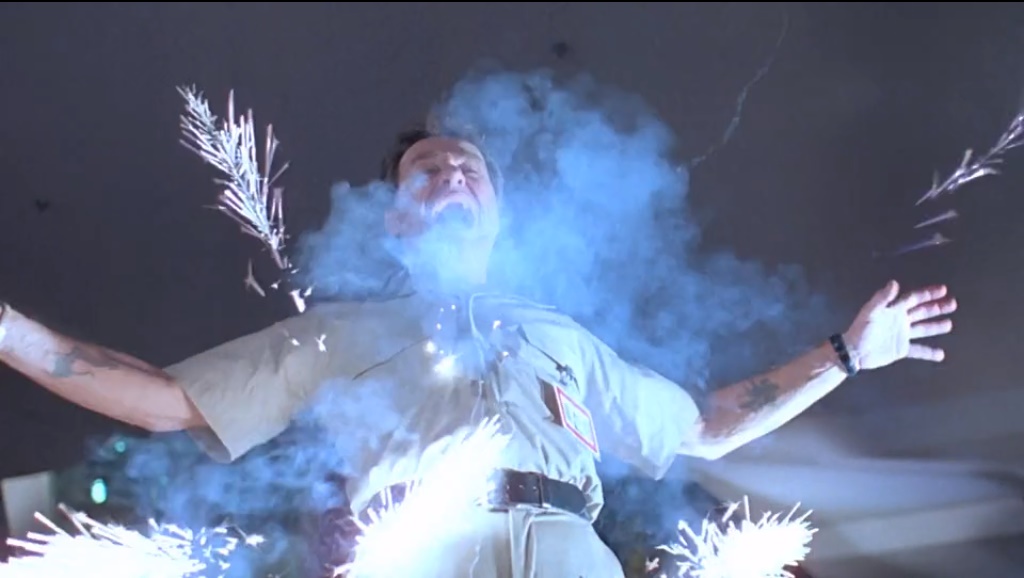
The eighties were the decade when shopping malls conquered the U.S. and developers made a fortune off of failed farms, old neighborhoods, and tracts of neglected lands. The mall was American capitalism incarnate, a symbol of Reagan era greed, paranoia, and American supremacy. Malls instantly became essential to suburban economies and the lifestyles of suburban inhabitants. Malls quickly came to dominate youth culture to such an extent that to this day malls are associated with youth of the eighties.
Of course malls would become the subject or setting of many a film during the eighties, including horror films. The two most infamous of these horror flicks being Phantom Of The Mall: Eric’s Revenge (1989) and Roger Corman’s production Chopping Mall (1986). Phantom Of The Mall: Eric’s Revenge, with its title that seems to imply that it’s a sequel, is the more political of the two films in its ham fisted adaptation of Gaston Leroux’s novel that casts developers as evil arsonists and journalists as heroes. But the political commentaries of Phantom Of The Mall: Eric’s Revenge are relatively inconsequential, and overshadowed by spectacles of slapstick violence and gratuitous scenes of simulated sex. Chopping Mall, on the other hand, promises only escapism and it delivers.
Jim Wynorski’s Chopping Mall is as silly and stupid as any B-movie could ever hope to be. Why, there’s no chopping at all in Chopping Mall, just a corny pun. And yet, that seems to be the entire point of this low budget film. Chopping Mall wants only to make a film that is as frivolous and as capitalist as its titular setting. The film is essentially a love letter to Corman’s brand of exploitation films with posters for his films adorning the walls of the restaurants in the mall and comical cameos by Corman regulars Dick Miller, Mary Woronov and Paul Bartel. All Chopping Mall has to say about malls is that they are strikingly similar to New World Pictures in both the pleasures offered and capitalist intent.
Wynorski’s idea of a plot is that mall employees Kelli Maroney and Barbara Crampton and their friends stay over night in the mall to party when the futuristic robot security guards go bonkers and go on a homicidal rampage. Chopping Mall pits scream queens against robots with less finesse than those in Disney’s The Black Hole (1979) and lasers that would be right at home in The Dungeonmaster (1984). Wynorski’s agenda is little more than his trademark emphasis on bare breasts and gross-out gore in the name of adolescent escapism.
It’s this purity of purpose that makes Chopping Mall so appealing and such an apt metaphysical metaphor. Phantom Of The Mall: Eric’s Revenge doesn’t accomplish anything more than Chopping Mall, it just pretends to. Where Phantom Of The Mall: Eric’s Revenge gets bogged down in plot and cheesy messaging, Chopping Mall celebrates titillation in the name of commerce. Besides, isn’t it more fun to watch Maroney and Crampton than Pauly Shore?
